Ian Gallo ’14 will spend summer as fellow at Au Sable Institute of Environmental Studies
Tuesday, May 27th, 2014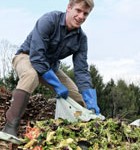 Sometimes, it takes a natural disaster to find one’s calling. After Haiti’s devastating earthquake in 2010, Ian Gallo ’14 traveled to the ravaged country on a medical mission trip. “That was my first time out of the country,” said Gallo, “and it was a little bit of a shock from my white, suburban upbringing. After seeing the great disparity between the life I was accustomed to and what I saw in Haiti, I began to question many of the systems that enabled my life to be different from those in Haiti.”
Sometimes, it takes a natural disaster to find one’s calling. After Haiti’s devastating earthquake in 2010, Ian Gallo ’14 traveled to the ravaged country on a medical mission trip. “That was my first time out of the country,” said Gallo, “and it was a little bit of a shock from my white, suburban upbringing. After seeing the great disparity between the life I was accustomed to and what I saw in Haiti, I began to question many of the systems that enabled my life to be different from those in Haiti.”
Messiah College provided the environment in which he could explore exactly those questions he brought back from Haiti. As a sustainability studies major with a minor in peace and conflict studies, he signed up for the first-year seminar course, “In the Pursuit of Green,” an examination of issues that result from an insatiable consumerist culture and how Christians are called to respond to them. “The class was a wonderful and entirely overwhelming critique of the state of creation care,” said Gallo. “The social and environmental destruction that came about as a result of the exploitation of our neighbors around the world deeply inspired me to change part of the systems that enabled these crimes against God and humanity.” (more…)

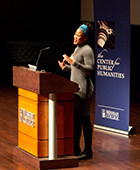
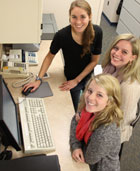 Julie Price ’14, Shannon Cochran ’14 and Courtney Walton ’16 all have one thing in common: a genuine care for sustainable food. That’s why, together, they are bringing the Real Food Challenge to Messiah College.
Julie Price ’14, Shannon Cochran ’14 and Courtney Walton ’16 all have one thing in common: a genuine care for sustainable food. That’s why, together, they are bringing the Real Food Challenge to Messiah College.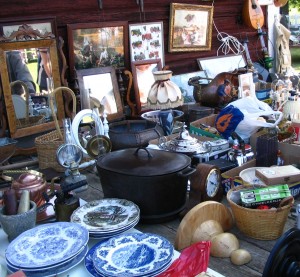

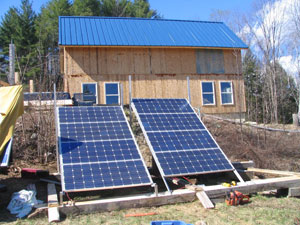
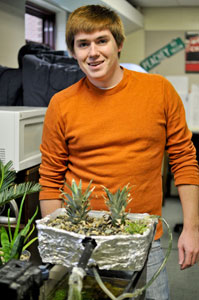
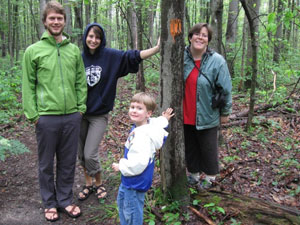
 It is officially Earth Week – the start of an all-week celebration leading up to Earth Day on April 22. This year Earth Day celebrates its 40th anniversary, and Messiah College, in commemoration of this significant anniversary, is launching
It is officially Earth Week – the start of an all-week celebration leading up to Earth Day on April 22. This year Earth Day celebrates its 40th anniversary, and Messiah College, in commemoration of this significant anniversary, is launching